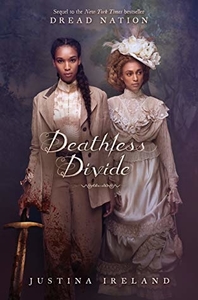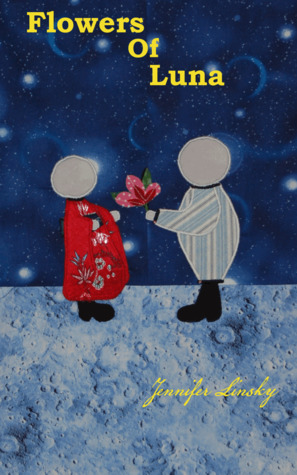I have had Dread Nation in my TBR list for a while. After Deathless Divide was released, I was even more pressed to check out this duology, even though YA stories about zombies are not exactly something I would normally read. The premise was just too good—after the dead rise during the American Civil War, Native and Black American kids are taken from their families and forced into an education that basically trains them to protect white people from zombies.
The first book, Dread Nation, set up the world and had protagonists Jane and Katherine finding out that the biggest danger did not come from the undead. Deathless Divide starts just as the first book ended, with Jane and now friend Katherine fleeing the town they had been sold to and trying to find their luck in a nearby frontier town founded by people of color. But the people who were all too gleeful to see our protagonist basically enslaved into a death sentence flee to the same destination, and so Jane’s problems continue to follow her.
I had conflicting feelings about Deathless Divide. On one hand, the duology as a whole is the best YA series I’ve ever read. On the other, the books seem to show that I’m not really the audience for YA dystopian fantasy, even the most creative, amazingly developed ones. I have always struggled to get on board with how overly plotted and overly designed some YA fantasy books feel. It was an issue I had even with books I read and loved as a teenager.
Dread Nation had a chaotic energy that I loved. It had some tropes, but it mostly felt wholly original. Deathless Divide, on the other hand, seemed to try very hard to hit all outlined plot points, sometimes to the detriment of the characters, and it drove me mad, because the characters are the soul of the books.
It also had very specific quests the protagonists had to complete, unlike the ‘just survive’ approach of the first book, and after the first half, the sequel feels like it’s spinning on wheels trying to convince us the characters really would make all these decisions that would lead to resolution being delayed and delayed until the very last pages. For example, it’s impossible not to see where Justina Ireland (as amazingly talented as she is) tried to turn Jane bitter and where she left crumbs for Jane’s salvation.
I have loved Jane since the first book and I was even more excited to spend time with her in Deathless Divide, because while it is revealed in book one that Jane is bisexual, this installment was supposed to bring us a sapphic romance for Jane.
When Jane told people again and again that she had to get revenge, no matter what, I sided with her. I felt her pain. I was annoyed at Jane’s constant attempts to try to save people who were monsters, but I also believed in my core that she was a good person who felt she had to try. I was annoyed that Jane believed she could reason with people who saw her as less than human and convince them she was right, but I rooted for her nevertheless. I believed in her flaws. I trusted her as a character.
But all my love for Jane could not prevent me from seeing that halfway through this book she changed specifically so she could be redeemed. She became a different person than she was for one-and-a-half books entirely to drive the plot into meandering tangents that delayed her completing her quest. She made stupid decisions to delay the climax of the book and create tension.
That soured the book for me a bit. The fact that other characters also have their ultimate growth attached to Jane’s arc didn’t help.
Ireland created a cast of characters that was instantly likable, despite their many stubborn moments and their many errors in judgment.
I loved Sue more than I loved Jane. I loved Katherine more than I loved Jane. I wanted their journeys to stay their own. And I wanted to love Callie, and hated that she was not given as much complexity as Jane’s male crushes.
I won’t lie, the promise of a little sapphic action was what drew me to this series. I stayed because of the writing (despite my whining), but I still wanted to see Jane in the context of this relationship, given that her feelings for the two male romantic interests in past books were extremely relevant to the story and her growth as a character.
But Callie is never developed very deeply. We never see them falling in or out of love. We never know if there was anything in Callie that Jane liked beside Callie’s willingness to take care of her and stay by her side. It was so disappointing.
Jane and Callie are not the only LGBTQIA+ representation, however, and if I still loved this book, it is in great part because of Katherine. Katherine and Jane have an enemies-to-best-friends journey that is the emotional core of the books. I was heavily invested in their friendship, but I was especially engaged with Katherine’s arc.
Katherine is complicated and delightful. She is consistently loyal and curious about the world. Her ace identity did not feel forced, and it did not feel like a gimmick or a throwaway storyline. She is always whole and complex and driven, even when her story becomes all about her friend. She wasn’t my favorite character in Dread Nation, but in Deathless Divide, she rightfully steals the spotlight and stays the most cohesive character, even while growing and changing.
I wish Katherine had enjoyed more of an arc of her own. I wish the side characters had also gotten more time on the page. I rarely say this, but this duology could have easily been a trilogy, because there were enough character-driven plots that could have been pursued.
There were so many elements that worked in the book—the experiments and the anger they caused on Jane; the complicated journey to find a safe haven from the zombies, only to find out that there were few refuges to be had if you were Black; and the way each loss resonated and was felt deeply.
But I would also have loved for the one queer relationship to have gotten its due on the page, even if it didn’t have a happy ending. I would have loved for more of the characters to have time to feel whole.
I still think Justina Ireland did something unique and special. This was such an original idea, and while some of its elements left me frustrated, I think it says something about the book that I just wish there was a lot more of it. I cared about this world so much, to the end. I would gladly revisit it and spend time with any of the peripheral characters.
If you haven’t read it yet, you should. Whatever problems the book has, it also has beautiful people you will be glad you spent some time with.


